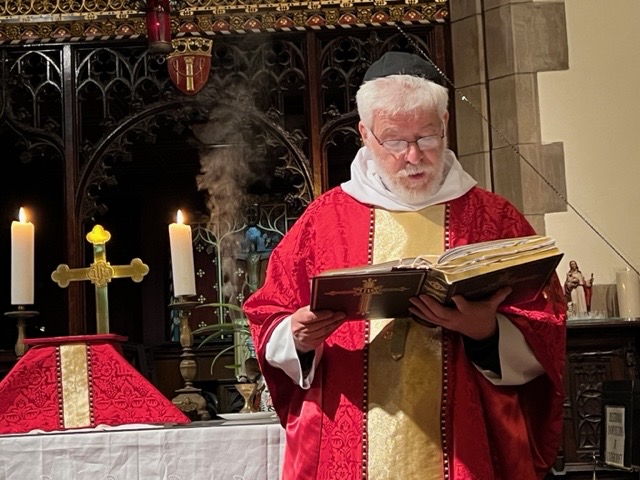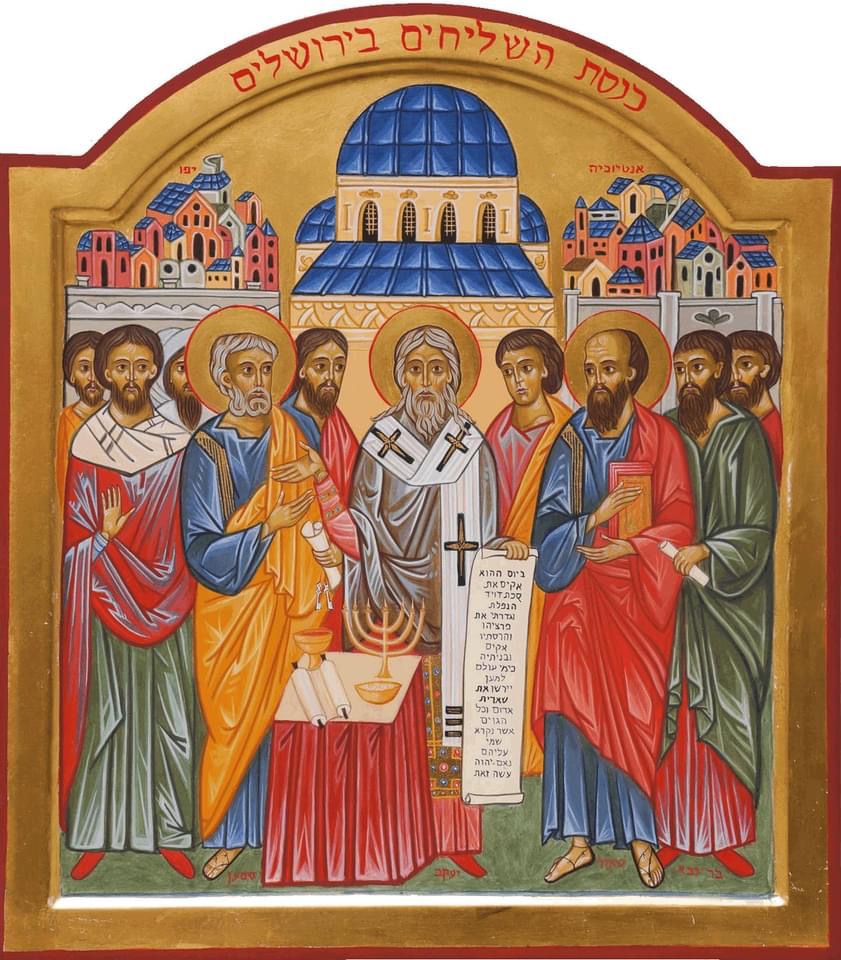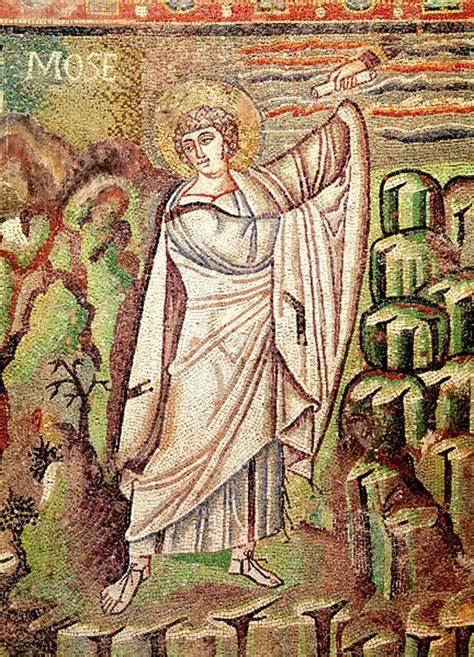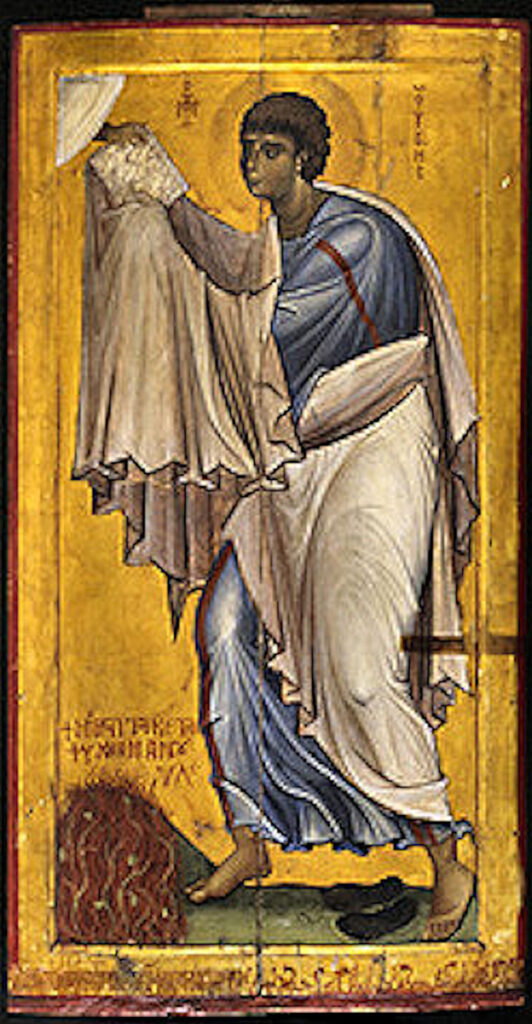
The proclamation of the Epistle on St. Luke’s day (photo by Kate Stronk) 
St. James proclaims the decision of the apostolic council 
Moses receives the Word to proclaim to the judges of Israel
When Moses went and told the people all the Lord’s words and laws, they responded with one voice, “Everything the Lord has said we will do.” Moses then wrote down everything the Lord had said. (Exodus 24:3-4)
Nowadays most Americans think their experience of God should be intellectual and cerebral. They expect to encounter God by reading or in a text. They discount the importance of their bodies when experiencing the divine. They often think that they cannot experience God except in their minds. Many are sure that what they think is more important than what they do.
Throughout the Bible, however, people do not encounter God by reading but by their hearing or with their eyes. Exodus 24 describes how the 70 leaders and judges of the Israelite clans gathered at Mt. Sinai heard Moses proclaim the covenant and commandments long before they were written down. On the foothills of Mt. Sinai, these 70 judges saw the same thing St. John saw in the Book of Revelation: the Lord enthroned in glory on a sapphire pavement brighter and more pure than the sky. They glimpsed eternity.
Jesus said, “Blessed are those who hear the word of God and keep it.” He is that divine Word. It is by hearing that we encounter the Word made flesh and his words. Jesus told the apostles, “Many prophets longed to see what you see.” The apostles saw the Word made flesh. During the pandemic, we learned again about how important it is—that it is possible—to receive Holy Communion with our eyes when we cannot receive the Sacred Host in our mouths.
We turn to God so that we can hear him. We open our eyes so that we can see him. In Psalm 40, King David says, “You have given me ears to hear you.” The epistle to the Hebrews quotes this, understanding Christ as the one whose ears hear what the Father says. The prophet Isaiah picks up on this theme as well, speaking for the Messiah: “The Lord God wakens my ear to hear as the learned” (Isaiah 50). What we hear, what we listen to you shapes and forms us in fundamental ways. Who we listen to reveals who we are and who we want to be.
The Word was meant to be heard, not read. This was due, in part, to widespread illiteracy and the difficulty of having books easily accessible. But even when more people can read and books are available, the Word is still meant to be heard. The Word is meant to be experienced viscerally, in our guts not just in our heads. Even when we pray —by ourselves in our rooms—the words of our prayer should be heard and not just recited in our heads; all the spiritual guides have always taught that we should move our lips and feel our breath forming the words of our prayer even if we cannot hear them. We pray with our whole bodies, not just our heads. Never just with our heads.
Listening to the Word of God, experiencing the divine with our ears forms us to be the Body we want to be. We want to hear the Word of God and keep it. We want to hear the Word of God and become that word ourselves. We need to practice listening on a daily basis and cut through the inner static or feedback we all have in our heads. Slowly reading a psalm every day helps us do this. Sitting quietly for a few minutes and saying the Jesus Prayer, “Jesus, Son of David, have mercy on me” (Luke 18:38) can help us do this.
“Behold, I stand at the door and knock. If anyone hears my voice and opens the door, I will come in to him and eat with him, and he with me” (Revelation 3:20).



